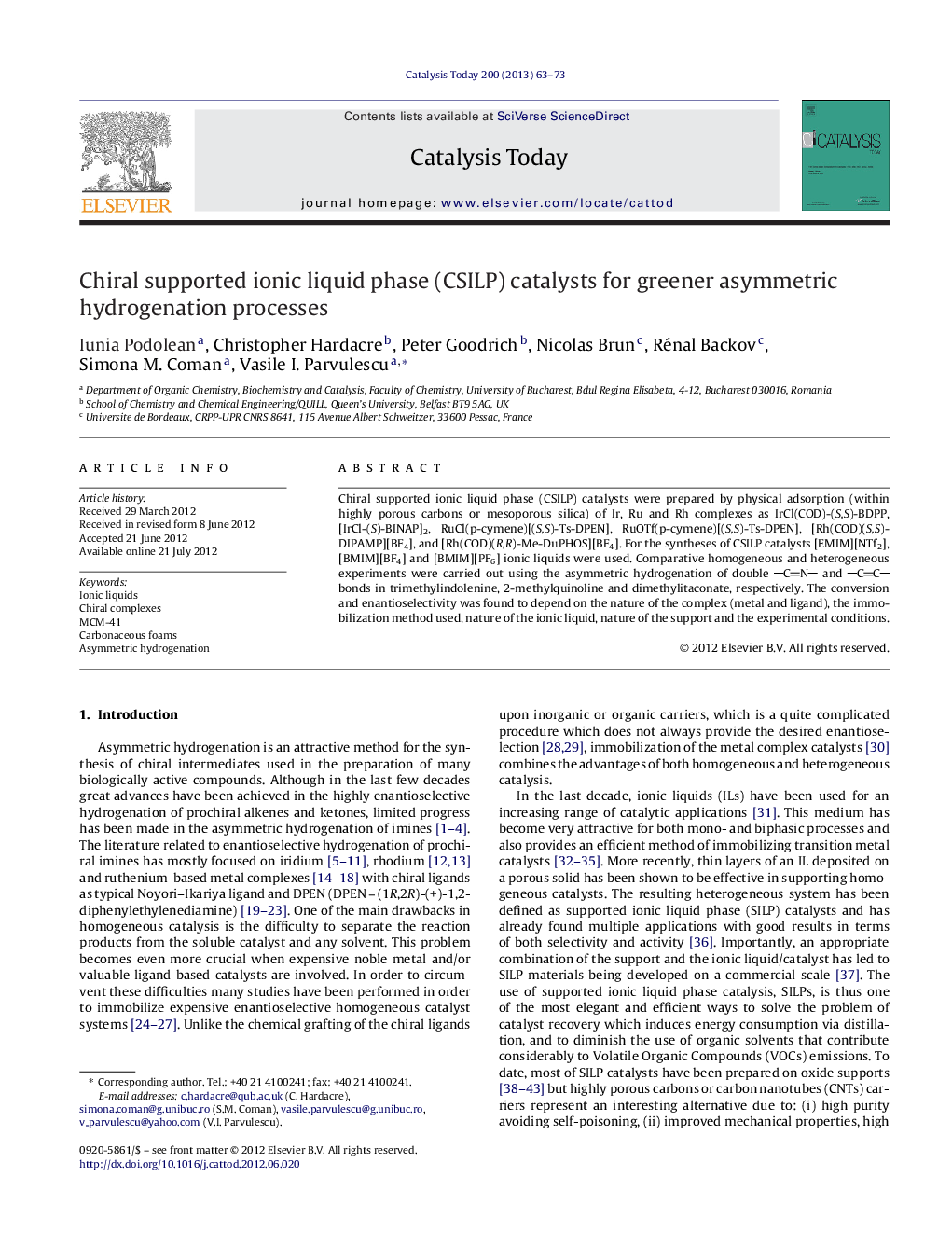| Article ID | Journal | Published Year | Pages | File Type |
|---|---|---|---|---|
| 55258 | Catalysis Today | 2013 | 11 Pages |
Chiral supported ionic liquid phase (CSILP) catalysts were prepared by physical adsorption (within highly porous carbons or mesoporous silica) of Ir, Ru and Rh complexes as IrCl(COD)-(S,S)-BDPP, [IrCl-(S)-BINAP]2, RuCl(p-cymene)[(S,S)-Ts-DPEN], RuOTf(p-cymene)[(S,S)-Ts-DPEN], [Rh(COD)(S,S)-DIPAMP][BF4], and [Rh(COD)(R,R)-Me-DuPHOS][BF4]. For the syntheses of CSILP catalysts [EMIM][NTf2], [BMIM][BF4] and [BMIM][PF6] ionic liquids were used. Comparative homogeneous and heterogeneous experiments were carried out using the asymmetric hydrogenation of double CN and CC bonds in trimethylindolenine, 2-methylquinoline and dimethylitaconate, respectively. The conversion and enantioselectivity was found to depend on the nature of the complex (metal and ligand), the immobilization method used, nature of the ionic liquid, nature of the support and the experimental conditions.
Graphical abstractFigure optionsDownload full-size imageDownload high-quality image (334 K)Download as PowerPoint slideHighlights► CSIP catalysts were prepared by physical adsorption within high porous carbons and mesoporous silica. ► Ir, Ru and Rh chiral complexes were used as stereoselective catalysts. ► [EMIM][NTf2], [BMIM][BF4] and [BMIM][PF6] ionic liquids were used in the preparation of CSIP catalysts. ► Homogeneous and heterogeneous asymmetric hydrogenation of double CN bond of trimethylindolenine and 2-methylquinoline. ► Homogeneous and heterogeneous asymmetric hydrogenation of double CC bond of dimethylitaconate.
